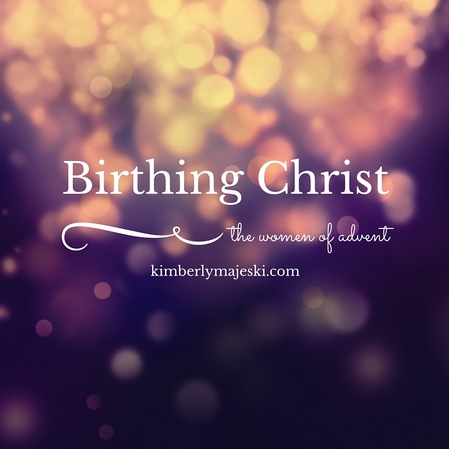|
|
 .In those days folks were suspect of strangers, didn’t trust others from foreign lands. Fear had seized the hearts of the cities such that the ancient practice of hospitality had been all but lost. She lived in the border town, was the woman who lived on the wall and saw it all go down—the bloodshed, the fighting, the wars so if anyone should have been afraid she certainly had cause. I’ve seen her city with my own eyes, looked down from the craggy, dusty mounts of the biblical Moab to see the lush green valley and fertile fields of Jericho. The city on the edge of the Promised Land must have looked like heaven on earth for those who had wandered in the harsh, barren wilderness for forty long years. Ages upon ages later as I watched the palm trees sway in the balmy air and saw the sun dance on the water, I understood why the ancients called this, “the land flowing with milk and honey.” The people in Rahab’s city had long heard of and feared Israel and her God so when those God people appeared on the horizon, the king of Jericho sent orders to keep watch for intruders and to report back any trouble to come their way (Joshua 2)." "That will fix it" the king thought, "Fear will force my people to find the others, the ones who are not like us." "And anyway, our city is safe" he reasoned, "We have a great, strong wall." How she found her way to the wall is unknown to us, but suffice to say it is where you end up when you have nowhere else to go; no family, no support, no backup plan. It was how a woman survived when she had no other course, she sold her body so she could eat and feed any children she might have, she put herself in harm’s way to survive another miserable day. The characters on the wall were not the elite of the community, no these were the wanderers,the alcoholics,the thieves, these were the ruffians, the ones who were lost and sought a moment of pleasure in their own miserable existence so depravity sewed depravity and the cycle was without end. Only Rahab’s story was different, because in her we see again how the זוֺנַה the harlot is God’s choice to be a conduit of grace and the one to birth redemption into her time and place. When Joshua sent the spies to scope out the city after forty years in the wilderness, Rahab anticipated their arrival. She’d heard the stories of the “God who led people through the sea” the One who fed the wanderers bread from heaven, and “stood guard over their camps like a pillar of fire!” So when the spies arrived, the men who were sent from this God she decided to take a chance and put her life in the hands of the One who “brought this people out, so he could bring them in (Deuteronomy 6.23).” The king, upon learning that spies had entered the city, rounded up his men to question the people on the wall. Grabbing her arm and holding her by the scruff of the neck the soldiers breathed venom into her face, “Have you seen these men?!” they demanded, “Tell us the truth whore! Your worthless life depends on it!” And just then her whole life flashed before her eyes; she knew she had a decision to make in the space of her breath. She could keep doing what she had always done, she could continue to eek out an existence on the wall entertaining men who thought more of the dust on their sandals than her happiness, she could continue to sell off parts of her self to survive one more hour, one more day until there was nothing left, or-- she thought with a flash--she could take a chance on the God of the storm and the sea. “I haven’t seen them!” she lied, as her heart beat loud and fierce, her mouth went dry and her ears burned hot. She knew the men were hidden under the rushes and if the guards decided to look too carefully she and the men of Israel she was protecting would die. Instead, the guards believed her story and left her so she quickly helped the men scurry out of the city and up the mountainside to safety but not before they promised to spare Rahab and her household. So when the armies of Israel returned to march around the city, she hung her scarlet thread outside her window, the same window where men had stared up at her and considered her price before, the same window where she probably considered throwing herself down from time and again. Instead, the deep crimson thread read like the blood over the doorpost to the armies of Israel so that Rahab and whatever people she had were spared and she was adopted into the family of God. This Advent season when there are wars and rumors of wars, when our world is violence filled, when fear of the other has robbed our joy and stolen the power of embrace may we pause to remember the time long ago when God came to us in the most unexpected way. Let us remember the time when the no good, down and out harlot became the heroine, when she chose to take a chance on this God and found a miracle in the strangers. Rahab's is the story of the prostitute whose risk lands her in the story of redemption history, establishes for her a place in the genealogy of the Christ (Matthew 1) and her inheritance is secured in the annals of faith (Hebrews 11). Her story calls out to remind us, God is the God of the harlot, the untouchable, the other. Her story beckons to us across the sea, and says "Be not afraid."
1 Comment
|
Subscribe Today for Free GiftBLOG
Archives
June 2019
Categories
All
|

 RSS Feed
RSS Feed